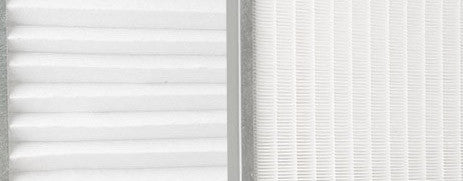Filters are one of the most important parts of a ventilation system. They determine the air purification process and filter the particles and dust particles from the air. In this way the fan can work optimally. The correct filter can be selected depending on the model and the available space.
People who have hay fever are recommended to keep windows and doors closed as much as possible during the pollen season. For example, pollen does not come in, but through your ventilation system you naturally pull it in ... and if the weather is nice, you will not constantly keep your windows and doors closed?
Those who have a ventilation system D in their home filters incoming fresh air. But for those who suffer from hay fever, the type of filter here is of great importance. In that case, an F7 filter is the solution. This catches fine particles. In contrast to the standard G3 or G4 filter, which only holds back particles that you can still see with the naked eye. An F7 filter, on the other hand, also does that with Pollen, for example. They are so small that we cannot see them. That is why it is best to place a fine -dust filter in the section where the fresh air enters. On the return side you can then have a G4 filter installed as the air goes out through that way to the outside.

If you choose an F7 filter, you choose the following benefits:
- Pollen are filtered from the supply air.
- The finer dust particles and also the harmful substances that are emitted by cars and trucks are stopped.
- The indoor Air Quality of every resident is increasing and the allergic reactions are declining.
No extra housing or filter cassette is required because you can remove the old coarse filter to place the fine -rose filter. Enough reason to switch to the Fine Filter today. It is a small extra cost that greatly improves your indoor air climate and thus has a direct effect on your health and that of your fellow residents.

